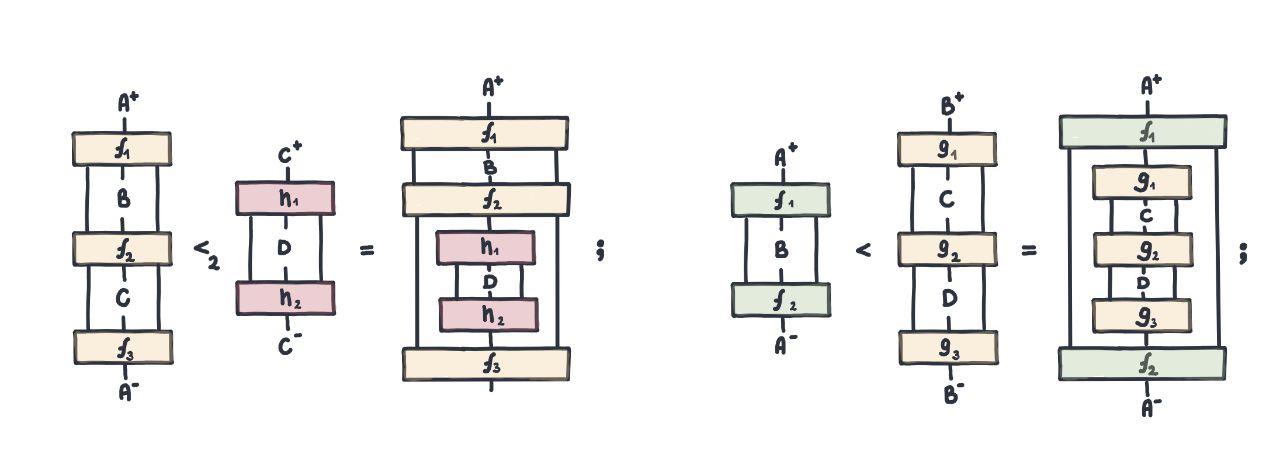The Produoidal Algebra of Process Decomposition (Earnshaw, Hefford, Román, 2023)
Optics have gained popularity in recent years. They appear in differential categories, compositional game theory, bidirectional accessors, process dependency and causality. At the same time, they remain a bit mysterious: why are they so effective? We claim that, apart from their usual monoidal tensor (⊗), optics have a second, hidden, monoidal tensor (⊲). This tensor structure is the crucial ingredient for some applications of optics, but it hides in plain sight because it is non-representable: the tensor of two objects is not again an object, but only a presheaf. Once we can clearly see this second tensor, optics become a non-representable duoidal algebra that is the universal such one over a monoidal category in a precise sense.
- Article: pdf.
- Slides: Ottawa Logic Seminar.
- Slides: MFPS 2023.
- Extended Abstract: Contouring Prostar Autonomous Categories.
Abstract. We introduce the normal produoidal category of monoidal contexts over an arbitrary monoidal category. In the same sense that a monoidal morphism represents a process, a monoidal context represents an incomplete process: a piece of a decomposition, possibly containing missing parts. We characterize monoidal contexts in terms of universal properties. In particular, symmetric monoidal contexts coincide with monoidal lenses, endowing them with a novel universal property. We apply this algebraic structure to the analysis of multi-party interaction protocols in arbitrary theories of processes.
the normal produoidal category of monoidal contexts over an arbitrary monoidal category. In the same sense that a monoidal morphism represents a process, a monoidal context represents an incomplete process: a piece of a decomposition, possibly containing missing parts. We characterize monoidal contexts in terms of universal properties. In particular, symmetric monoidal contexts coincide with monoidal lenses, endowing them with a novel universal property. We apply this algebraic structure to the analysis of multi-party interaction protocols in arbitrary theories of processes.
| |